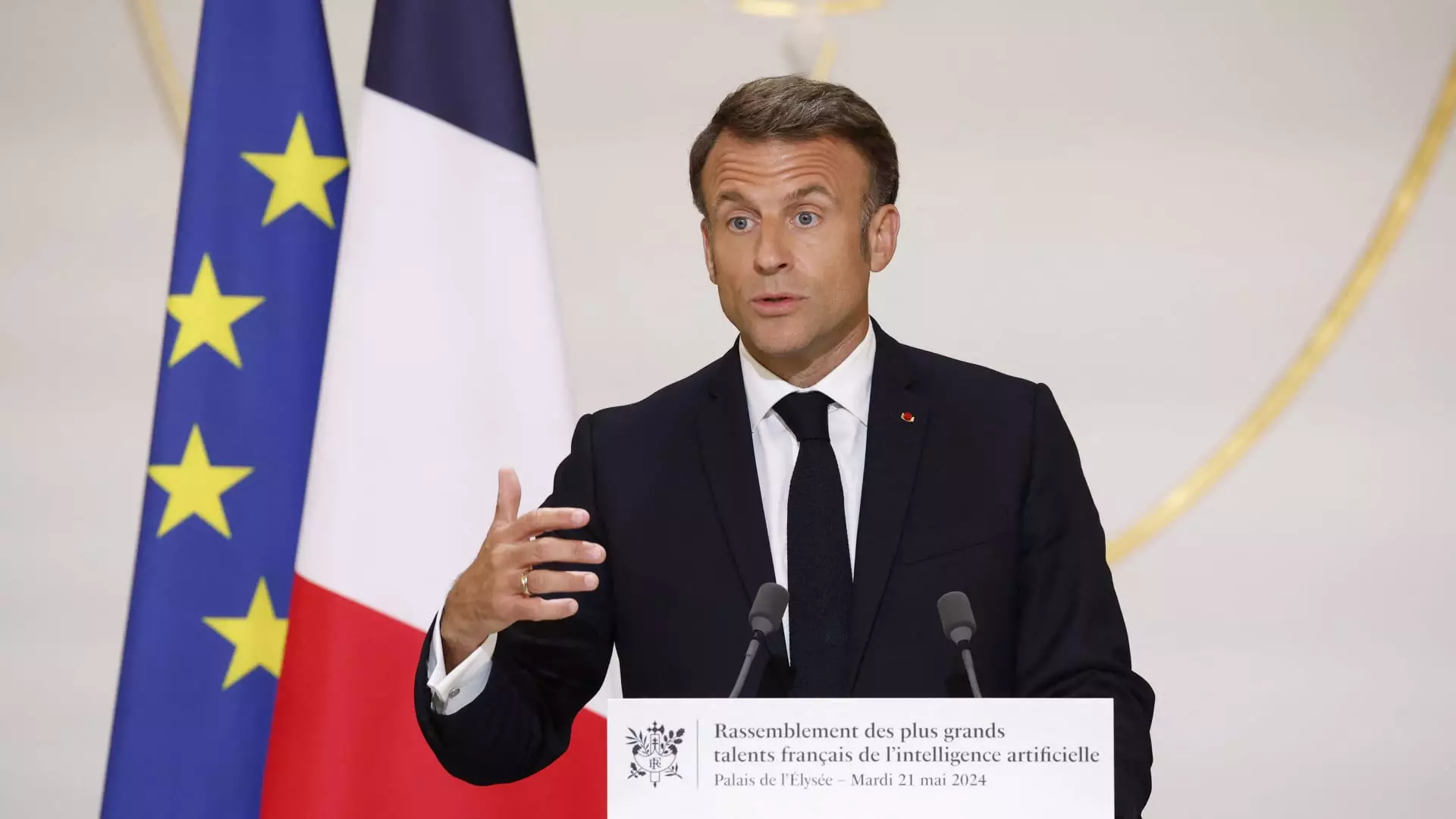French President Emmanuel Macron recently announced that he would dissolve the country’s parliament and call for a new legislative nationwide vote following a heavy defeat at the EU elections. Macron’s Renaissance party received only 15.2% of the vote, while Marine Le Pen’s far-right National Rally (RN) is set to win around 31.5%, according to exit polls published by public broadcaster France TV. This move by Macron comes as a surprise and is seen as a risky decision given the potential consequences it may have on the domestic issues in France.
If Le Pen’s RN wins a parliamentary majority in the upcoming election, Macron could potentially lose control over France’s domestic affairs. Macron, who is not due to end his presidency until 2027 and cannot stand for a third term, risks facing a challenging political landscape if his party continues to lose support. There is a sense of uncertainty surrounding Macron’s decision to call for new elections, as it could lead to further market concerns for a fiscally challenged France.
The far-right RN party, led by Jordan Bardella, has been gaining support in France, especially among the youth. With pledges to “restore” order to the country, close “radical” mosques, and address the issue of migration, the RN has been successful in appealing to a wider spectrum of voters. Le Pen’s decision to drop historic pledges to leave the EU and ditch the euro has also helped the party’s image and popularity among the French electorate.
While Le Pen’s RN party has made significant gains in recent elections, the path to the presidency for Le Pen is still uncertain. Despite her popularity and the potential for her party to win the upcoming legislative elections, Le Pen still faces challenges in winning a presidential election in 2027 against a fresh contender. Much of her success will depend on how the French centrist parties position themselves and whether they can field an attractive candidate to challenge her.
The recent EU elections saw populist and far-right parties winning record support across Europe, with the far-right Identity and Democracy group, which RN is a part of, making major gains. Despite this, the center-right European People’s Party (EPP) is projected to win the most parliamentary seats, indicating a continued dominance of traditional political parties in the European Parliament.
The political landscape in France is undergoing significant changes following the EU elections, with Macron’s decision to call for new legislative elections adding further uncertainty to the situation. The rise of nationalism and far-right parties in France is a trend that cannot be ignored, and the outcome of the upcoming elections will have a lasting impact on the country’s future direction. It remains to be seen whether Macron can regain control over domestic issues or if Le Pen’s RN party will continue to gain momentum in the lead-up to future elections.

Leave a Reply